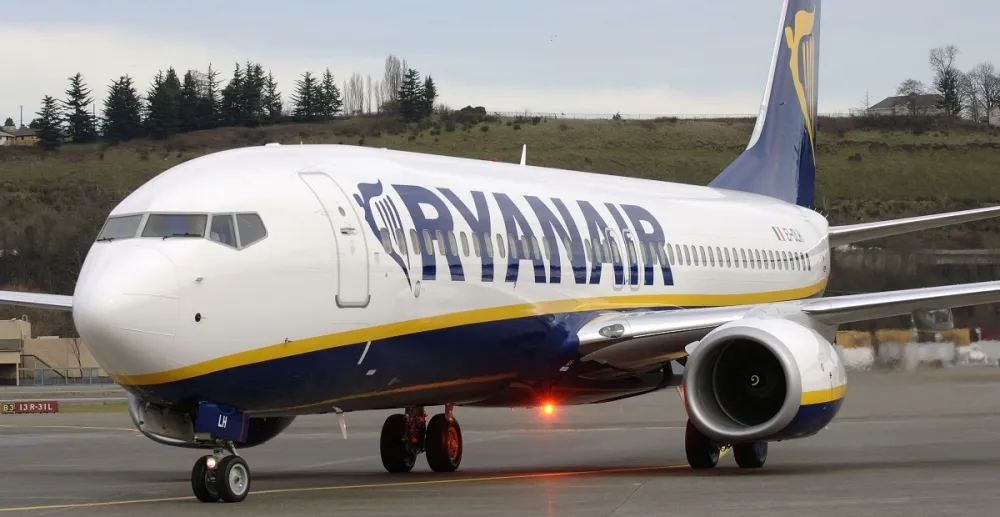
Ryanair plan to reduce flying, suspend routes hits 400,000.
Sep 27, 2017

Ryanair has announced a significant reduction in its flight operations, leading to the suspension of numerous routes. This decision is projected to impact around 400,000 passengers, reflecting the airline's strategy to adapt to changing market conditions and operational challenges. The cuts come amid rising costs and fluctuating demand for air travel, prompting Ryanair to streamline its services. Customers affected by the route suspensions will be offered alternatives, but the move highlights the ongoing volatility in the aviation industry. Ryanair aims to stabilize its operations while navigating the complexities of the post-pandemic travel landscape.
Ryanair, the low-cost airline known for its budget-friendly fares, recently announced a significant adjustment to its operational strategy. This decision comes in the wake of ongoing challenges in the aviation industry, including rising fuel costs, fluctuating demand, and the impact of external economic factors. As part of its plan, Ryanair is set to "reduce flying" and "suspend routes", affecting approximately "400,000 passengers". This shift marks a pivotal moment for the airline as it aims to streamline operations and focus on profitability.
Understanding the Suspension of Routes
The suspension of routes is not a decision taken lightly. Ryanair has carefully evaluated its operational performance and identified routes that are underperforming. By focusing on profitable routes, the airline can optimize its fleet utilization and increase overall efficiency. This strategy is essential for maintaining its competitive edge in the crowded low-cost airline market. The routes that are being suspended primarily include those with low demand or high operational costs, ensuring that the airline can better allocate its resources.
Impact on Passengers
For the "400,000 passengers" affected by these route suspensions, the impact is significant. Many travelers rely on Ryanair for affordable air travel across Europe, and the removal of certain routes could mean longer travel times or higher costs as passengers seek alternative carriers. Ryanair has indicated that it will work to facilitate rebooking or provide refunds for those whose travel plans are disrupted. This customer-centric approach is vital for maintaining brand loyalty, especially in a time when competition is fierce among budget airlines.
Market Reactions
The announcement has led to mixed reactions from industry analysts and travelers alike. Some experts believe that Ryanair's proactive measures to "reduce flying" will ultimately position the airline for a more sustainable future. Others, however, express concern about the potential long-term effects on the airline's market share. As airlines grapple with post-pandemic recovery, the ability to adapt to changing market conditions is crucial. Ryanair’s decision to suspend routes may be a strategic move to ensure it emerges stronger in the long run.
Fuel Costs and Economic Factors
One of the primary drivers behind Ryanair's decision to reduce its flying operations is the increasing cost of fuel. With prices fluctuating significantly, airlines are under pressure to manage their costs effectively. This situation is compounded by other economic factors, such as inflation and changing consumer behavior. As travelers become more discerning about their spending, airlines must adjust their offerings to meet demand while remaining economically viable.
Future Outlook for Ryanair
Looking ahead, Ryanair aims to adapt its business model to align with the evolving landscape of the aviation industry. While the suspension of routes may seem detrimental in the short term, it can allow the airline to focus on key markets and optimize its operations. By reducing its flight capacity, Ryanair can concentrate on maintaining high standards of service on the routes that remain operational.
Conclusion
Ryanair's plan to "reduce flying" and "suspend routes" affecting "400,000 passengers" is a strategic response to the current challenges facing the aviation industry. While the immediate impact on travelers may be disheartening, the long-term benefits could be significant for both the airline and its customers. As Ryanair navigates this transitional phase, its ability to adapt and innovate will be crucial in securing its position as a leader in the low-cost airline sector.
Key Takeaways
In summary, Ryanair's operational adjustments reflect the complexities of the aviation market today. Here is a summary of the key points:
| Aspect | Details |
|---|---|
| Route Suspensions | Affecting approximately 400,000 passengers |
| Strategic Focus | Concentration on profitable routes |
| Fuel Costs | Rising fuel prices prompting operational changes |
| Customer Impact | Potential for rebooking and refunds |
| Future Strategy | Adaptation to market trends for sustainability |
As Ryanair continues to evolve, its commitment to providing affordable air travel while ensuring operational efficiency will be vital in maintaining its status as a go-to choice for budget-conscious travelers.
Related Articles

Explore Thailand: The Best Islands to Visit for Paradise, Adventure, and Relaxation

The Ultimate Guide to the Best Islands in Thailand for Your Next Getaway

Do babies need passports? How to get a passport for a newborn

How to get a U.S. passport fast: here’s how to expedite the process

What is Mobile Passport Control: 5 reasons why you should use it

SENTRI vs. Global Entry: A detailed guide

Do you need a passport to go to the Bahamas? Let’s find out

Do you need a passport to go to Mexico? A detailed guide

Do you need a passport to go to Canada? We got the answer

Do You Need a Passport for a Cruise: An Essential Travel Guide

Booster Seat Requirements: All the Rules to Follow in Your Rental Car

What Are the World’s Most Powerful Passports, and How Does Yours Rank?

How to Take a Passport Photo at Home: A Helpful Guide

You've got to have heart! Southwest's new livery

Your opinion: Should water be free on low cost carriers?

Young women bolder than guys as solo travellers
